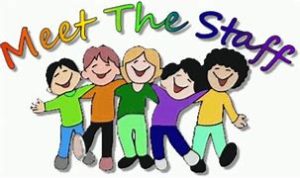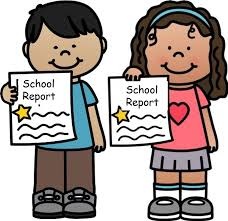School Information

Sandbank School is a small rural school just outside Dunoon, Argyll. We offer Gaelic and English Early Learning and Childcare which is available for children aged 3-5 years, and eligible 2 year olds. We have currently 13 Gaelic ELC and 21 English ELC attending our Early learning and Childcare. Our Gaelic Primary 2-5 class has 19 children and our Gaelic Primary 6-7 class has 15 children. Our English Primary 1-3 class has 25 children, our English Primary 4-5 class has 22 children and our English Primary 6-7 class has 26 children.
We follow the Scottish Curriculum for Excellence, which is broad and balanced, covering all academic areas, as well as placing emphasis on the development of social and emotional skills. These provide a secure foundation for the academic, creative and physical development of the children in our school.
We are incredibly proud of our school and the children who attend it. We are located in a rural setting and ensure that we utilise the natural resources that we have around us, in the children’s learning. We also ensure that we keep the children up to date with new technology.
Finding the correct school for your child is often a challenging experience filled with uncertainty. I encourage you to come and visit our school. I will be extremely pleased to welcome you and look forward to sharing our educational philosophies with you. I know that you will sense the unique atmosphere here and will want your child to become part of it.
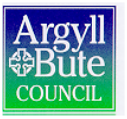
 Our Priorities 2024-2026
Our Priorities 2024-2026
‘Our Children, Their Future’
- Support establishments on their journey to achieving ‘Rights Respecting’ accreditation.
- Develop partnership working in order to ensure that the Children’s Rights agenda underpins the work of our establishments and services.
- Support establishments to ensure that their curriculum celebrates and promotes
diversity, is de-colonised and inclusive. - Develop approaches to celebrate and promote diversity through languages and culture with a specific focus on Gaelic.
- Support establishments to review and reflect on embedding nurturing approaches and trauma informed practices.
- Improve approaches to supporting young people with additional support needs or who are care experienced.
- Support schools to improve children and young people’s attendance.
- Support schools in approaches to transitions.
- Support schools to take part in programmes such as Mentors in Violence Prevention (MVP), MCR (Motivation, Commitment, Resilience) Pathways, Youth Scotland LGBTQ+ award and Planet Youth.
- Support establishments to raise attainment and close the poverty related attainment gap through use of data, high quality learning, teaching and assessment and use of resources.
- Support schools in cross establishment moderation building a robust understanding of standards.
- Support and challenge schools to develop school level stretch aims for literacy and numeracy.
- Develop Literacy, numeracy and digital learning frameworks to support planned, progressive, focused lessons and activities.
- Focus on acquisition of skills and access to personalised learning pathways.
- Support and challenge establishments to design a curriculum which is relevant,
engaging and meets the needs of all learners. - Develop strong partnerships to broaden and improve work-based vocational learning opportunities.
- Deliver targeted and universal support to further develop our children and young people’s STEM skills.
- Support innovative approaches to Outdoor Learning.
- Support establishments in developing and utilising a range of pedagogical approaches to ensure high quality experiences for all learners.
- Support establishments’ approaches to literacy and numeracy through targeted
and universal support. - Support building professional capacity in the effective use of data to support improved attainment.
- Support establishments in delivering high quality, coherent, progressive learning for all pupils.
- Increased focus on improving Secondary attainment at both BGE and Senior Phase.
Sandbank School Staff
Mr MacDonald Head Teacher
Mrs McMenemie Class Teacher EME P1/2
Mrs Campbell Principal/Class Teacher EME P3/4
Mrs Edgar Class Teacher EME P5/6
Ms Wilson Class Teacher EME P6/7
Ms Morrison Class Teacher GME P1/3
Ms Day Class Teacher GME P4/5/6/7
Mrs McKillop Class/NCCT Teacher
Mrs Marshall Class/NCCT Teacher
Mrs Montgomery ELC Lead Practitioner
Ms Emmerson ELC Childcare in Education Worker EME
Ms Reynolds ELC Childcare in Education Worker EME
Mrs Anderson ELC Childcare in Education Worker EME
Ms Hamilton ELC Classroom Assistant EME
Ms MacDonald ELC Childcare in Education Worker GME
Ms McCarthy ELC Childcare in Education Worker GME
Ms Drinnan ELC Classroom Assistant GME
Mrs MacDonald Clerical Assistant
Mrs Judd Additional Support Needs Assistant
Mrs Keith Additional Support Needs Assistant
Mr Smith Additional Support Need Assistant
Ms Gray Additional Support Needs Assistant
Mrs Kerr Classroom Assistant/Additional Support Needs Assistant
Mr Davies Additional Support Needs Assistant
Mrs McCowan Additional Support Needs /Pupil Support Assistant
Ms Owen Gaelic Classroom Assistant
Ms Drinnan Gaelic Language Auxiliary/Gaelic Classroom Assistant
Mr Hobday Janitor
Mrs Ritchie Catering Manager
Ms Lees Catering Assistant
Ms McNab Catering Assistant
Ms McCaig Cleaning Supervisor
Mrs Livingstone Cleaning Assistant
 A complaint is ‘an expression of dissatisfaction about the Council’s action or lack of action, or about the standard of service provided by or on behalf of the Council’.
A complaint is ‘an expression of dissatisfaction about the Council’s action or lack of action, or about the standard of service provided by or on behalf of the Council’.
Complaints can be notified in person, by phone, by email or in writing to the Head Teacher. If parents/carers have cause for complaint they should contact the school in the first instance to make an appointment to meet with the Head Teacher or member of the management team.
Reporting informs parents/carers of progress. Through a range of approaches, including a written Pupil Progress Reports and verbal reports to parents at Parent/Carer ‘Open’ and ‘Appointment’ afternoons/evenings held during the school year. Parents/carers will get regular information about their children’s strengths, progress and achievements.
This will take account of their achievements in key areas of learning such as literacy, numeracy and health and wellbeing and in different contexts and settings including across curriculum areas, the life and ethos of the school and learning outwith the school, including the wider community.

At key points this will include information on the curriculum level children are working within and progress towards qualifications in the senior phase.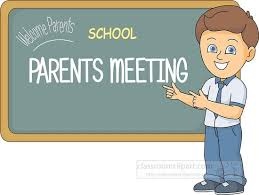
Parents/carers will be informed of what their children need to do to continue making progress and ways that they can help.
 Assessment is crucial to tracking progress, planning next steps, reporting, and involving parents/carers and learners in learning. Evidence of progress can be gathered by learners themselves and by fellow pupils (peers), parents/carers, teachers and other professionals.
Assessment is crucial to tracking progress, planning next steps, reporting, and involving parents/carers and learners in learning. Evidence of progress can be gathered by learners themselves and by fellow pupils (peers), parents/carers, teachers and other professionals.
A number of approaches are employed including the following:
- Self-assessment – learners will be encouraged and supported to look at and revisit their own work to develop a better understanding of what they have learned and what they need to work on
- Peer assessment – learners will be encouraged and supported to work together to help others assess what is good about their work and what needs to be worked on
- Personal learning planning – children, teachers and parents/carers will work together to develop planning for next steps in learning
Your child’s progress is not only based on ‘tests’ but on the learning that takes place within the classroom and in different settings out with the classroom.

Transitions are the moves children and young people make from home to nursery, from nursery to primary, from primary to secondary, from secondary to further education and beyond.
Starting Primary One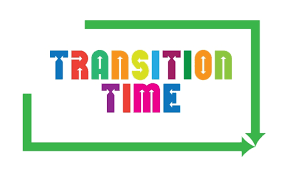
Your child will be placed automatically into a school in August if his or her fifth birthday falls between 1st March of that year and the last day of February of the following year. You can, however, make a request for early entry to school for a child whose fifth birthday falls after the above period.
If your child is due to start primary school in the August, he or she should be registered in your local primary school before the end of January that year.
To help your child prepare for a good start you can:
- Listen and talk to your child about this change in their lives
- Involve your child in getting ready for school by helping choose the things they will need, e.g. their uniform, lunchbox, school bag
- Keep in touch with the school about anything which may affect your child’s learning
- Attend induction events or introductory sessions
Transfer to Secondary School
Primary school pupils normally transfer to their catchment area secondary school in August following completion of their P7 year. Secondary staff visit P7 pupils to discuss aspects of their transfer with them and in June the pupils will spend an agreed length of time at their prospective secondary school.
The catchment area secondary school for Sandbank Primary

School is:
Dunoon Grammar
Ardenslate Road
Dunoon
Argyll
PA23 8LU
Telephone:01369 705010
Website: Dunoon Grammar School
You will be contacted by letter and offered a place for your child at Dunoon Grammar School, which you may either accept or decline. Secondary schools have their own arrangements for meetings with prospective parents/carers, and you will be given details of these meetings.
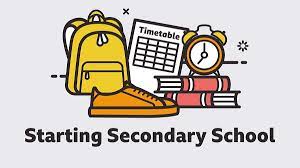
Should you prefer your child to attend a school other than the designated catchment area school then a Placing Request must be made. Forms are available from the Head Teacher or School Support, Argyll & Bute Council, Argyll House, Alexandra Parade, Dunoon, PA23 8AJ – Tel: 01369 704000.
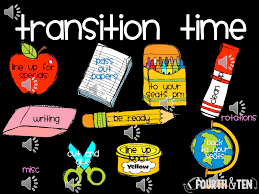
Moving from Stage to Stage
Your child will be involved in an induction programme every year in school. Prior to the summer holiday your child will meet their teacher/s for the following session and visit their new classroom/s. Teachers work closely and share information about your child’s learning and achievements. Staff will also share other information which will help the teacher support your child’s learning, e.g. friendship groups, preferred ways of working, etc.
Moving Between Schools
When a child moves to a new school their class teacher will normally telephone the new school to share information on academic achievement and personal likes/dislikes with their new teacher. Parents/carers are encouraged to organise a visit to the new school (if possible) in advance to support the child feel secure in the move.
It should be noted that opportunities for enhanced transitions are available for children as required.
Liaison with Local Schools
Our school maintains close links with Dunoon Grammar School and other primary schools within the local area. Our teachers, and in some cases our pupils, visit other schools and establishments and other teachers and pupils visit us. This process is important for the professional development of staff, reciprocal understanding and the establishment of curricular consistency.
Useful Links
Career Information, Advice and Guidance in Scotland – A Framework for Service Redesign and Improvement provides guidance on career information, advice and guidance strategy.
The Additional support for learning page provides links to relevant legislation and guidance, including the arrangements that should be in place to support pupils with additional support needs.
Supporting Children’s Learning Code of Practice includes specific requirements on education authorities and others under the new legislation in relation to transition.
Enquire is the Scottish advice service for additional support for learning.
Parenting Across Scotland offers support to children and families in Scotland.

Parents who are seeking a place for their
child are very welcome to contact the school to arrange a visit.
Once your child has been allocated a place you will be invited along to meet the staff, to find out more about the curriculum and to share information prior to your child starting school in order to make the transition from home to school as smooth as possible. A number of visits to school for parts of mornings are also organised for children in their pre-school year.
Please visit the Argyll and Bute Council’s website for further information.
The Education Committee recommended at its meeting of 21 August 1997 that – ‘the adoption of a distinctive dress code chosen to enhance the ethos of the school should be encouraged in all schools’. Given that there is substantial parental and public approval of uniform, schools in Argyll and Bute are free to encourage the wearing of school uniform.
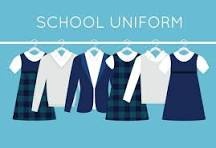
In Sandbank, the suggested uniform is as follows: a dark blue school sweatshirt, a white polo shirt and plain dark trousers, joggers, skirt or pinafore dress.
Parents and carers are also asked to ensure that valuable items and unnecessarily expensive items of clothing are not brought to school.
For PE, it is desirable that PE shorts, t-shirt and trainers or gym shoes are worn. Items, such as jewellery, watches, belts with metal buckles etc., which may cause injury to the wearer or other children must be removed. Jewellery worn as a result of body piercing should be such that removal is possible and easily undertaken.
Please note that school uniform is not compulsory and it is not policy to insist on pupils wearing uniform or having specialist items of clothing in order to engage in all of the activities of the curriculum. As such, pupils will not be deprived of any educational benefit as a result of not wearing uniform.
However, there are forms of dress which are unacceptable in school, such as items of clothing which:
- potentially encourage faction (such as football colours);
- could cause offence (such as anti-religious symbolism or political slogans);
- could cause health and safety difficulties (such as loose fitting clothing, dangling earrings);
- are made from a flammable material, for example shell suits in practical classes;
- could cause damage to flooring;
- carry advertising, particularly for alcohol or tobacco; and
- could be used to inflict damage on other pupils or be used by others to do so.
All clothing brought to school should be labelled or marked in some way, as it is difficult for children to distinguish their own clothing from others.
School Clothing Grants
For information about School Clothing Grants, including the eligibility criteria, and to complete an online application form please visit https://www.argyll-bute.gov.uk/education-and-learning/childcare-school-and-education-grants-0. Alternatively, please contact Customer Services: Education on 01369 708548 or your local benefit enquiry office.
Class Information
Class Information
Gaelic Medium
Ms MacDonald ELC
Ms McCarthy
Ms Drinnan
ELC = 6
Ms Morrison P1 – P3
Class Total = 15
Ms Day P4 – P7
Class Total = 18
English Medium
Ms Emmerson ELC
Ms Reynolds
Ms Maxwell
Ms Hamilton
ELC = 13
Mrs McMenemie P1 – P2
Class Total = 16
Ms Campbell P4 – P5
Class Total = 17
Ms Edgar P5 – P6
Class Total = 20
Ms Wilson P6 – P7
Ms Marshall
Class Total = 20



